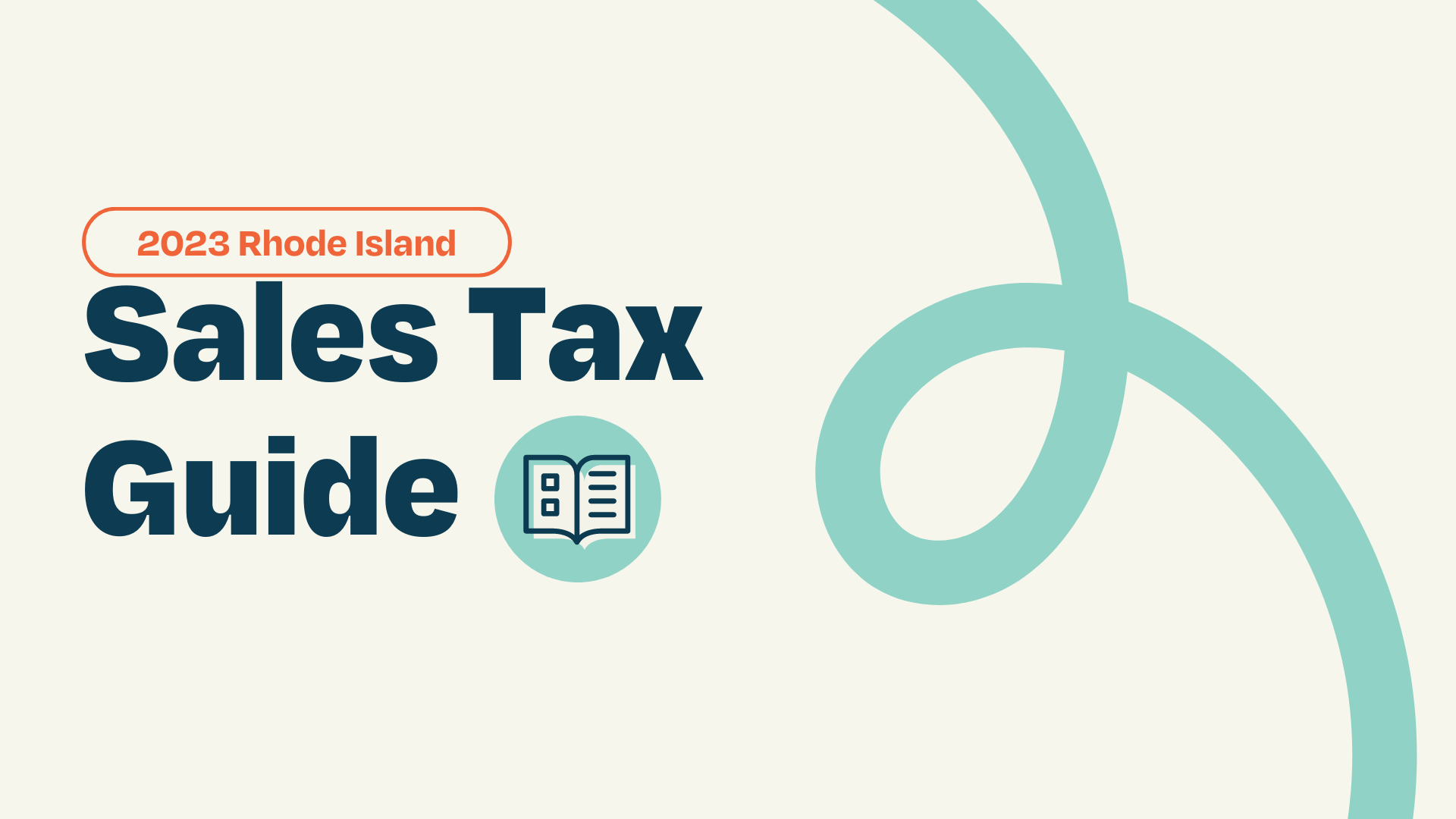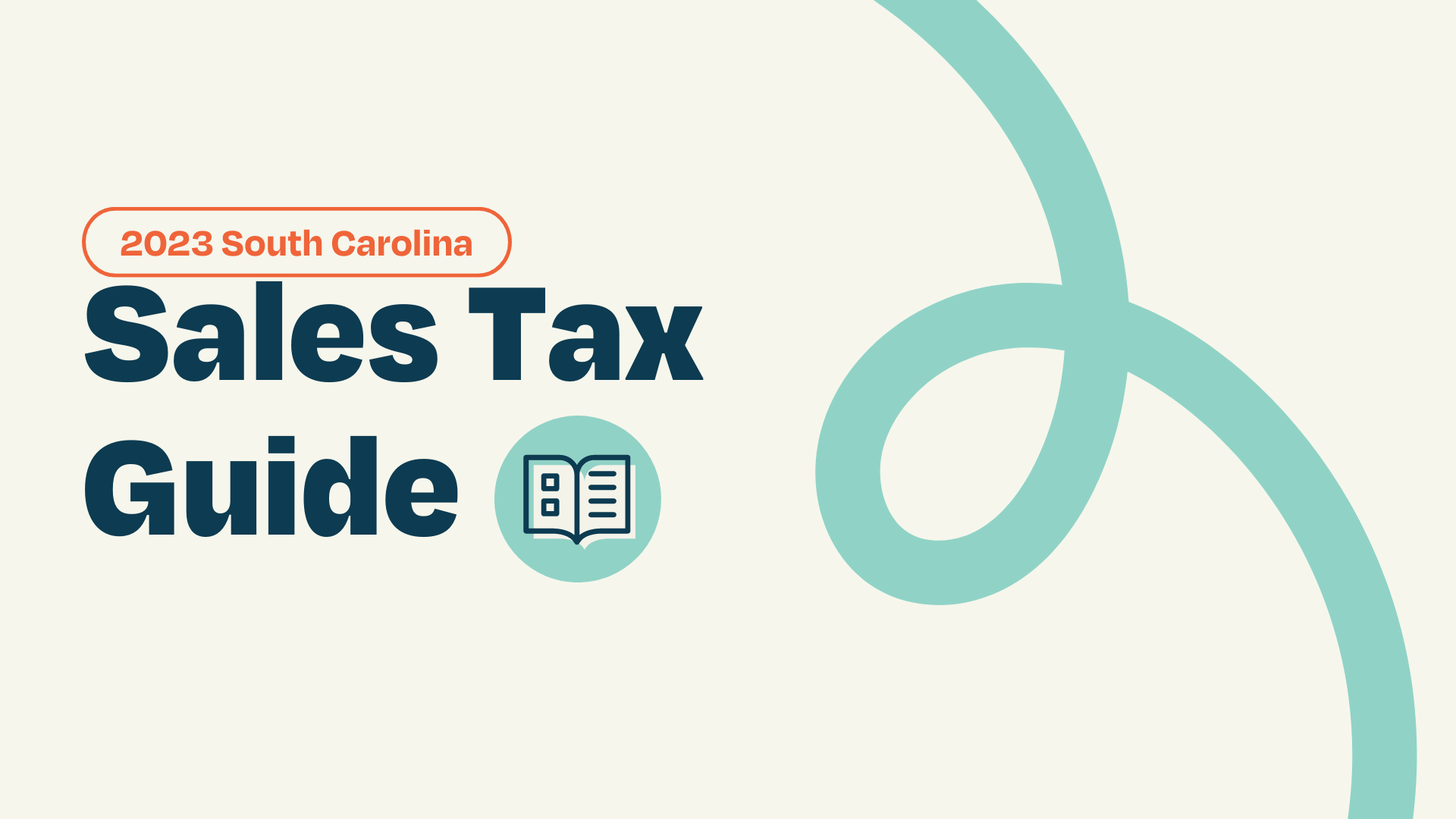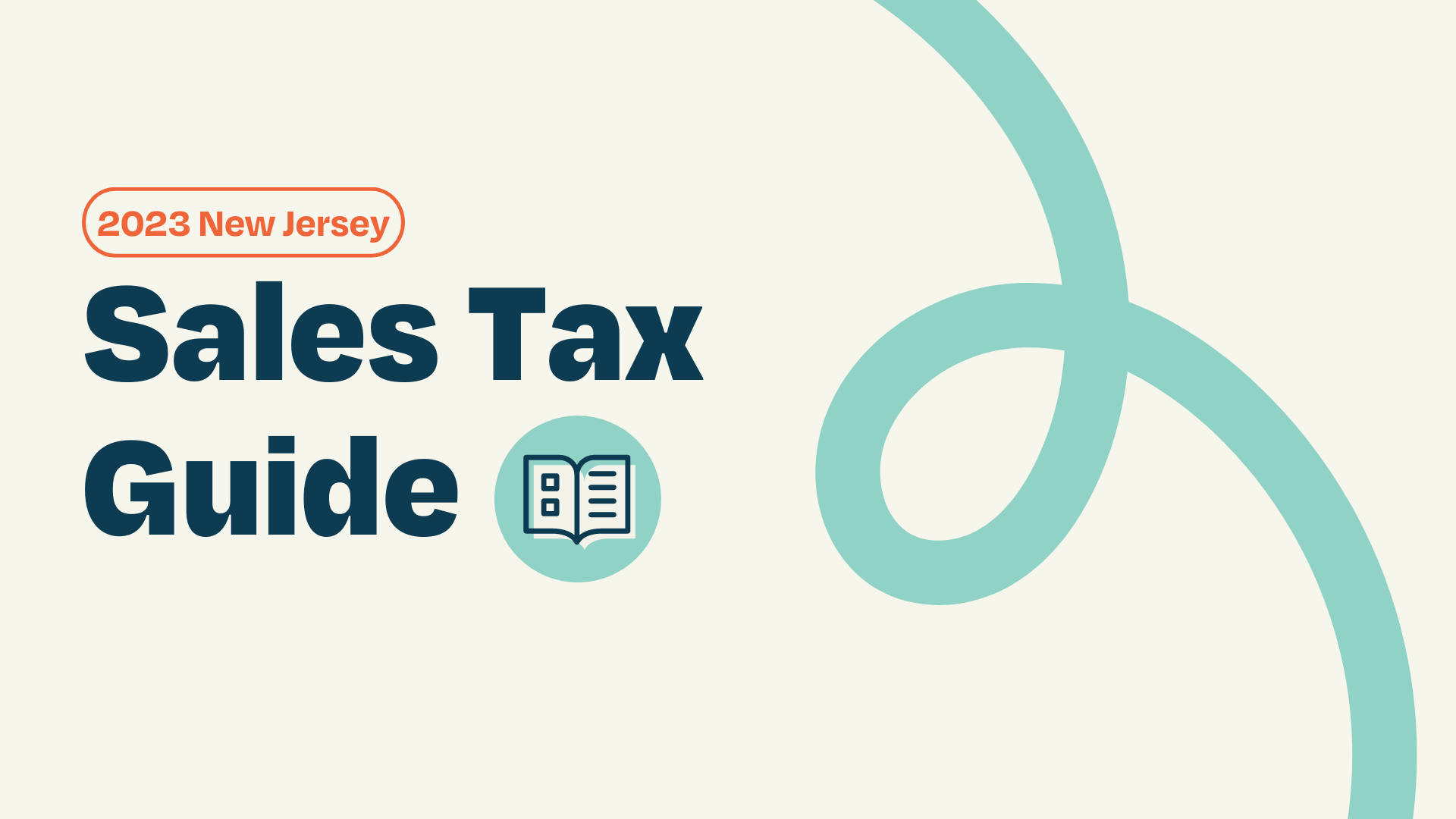1 min read
Economic Nexus by State: A Comprehensive Guide
As businesses continue to expand their online presence, understanding the implications of economic nexus has become increasingly important. Economic...

Ahoy, small business owners! It's time to hoist the sails and embark on a journey across the sometimes-stormy, often-confusing, but always-navigable seas of sales tax. Destination? The Ocean State—Rhode Island.
Whether you're a seasoned captain or a newbie sailor, navigating the waters of sales tax returns can feel like charting unknown territories. But don't worry, you've got the Accountingprose crew by your side. With our map of expert advice, we'll help you avoid hidden reefs, sail through calm waters, and even uncover hidden treasures—like tax exemptions and incentives.
So, climb aboard as we set sail through filing frequencies, due dates, and the how-tos of filing a Rhode Island sales tax return. We'll even drop anchor at some common mistakes and show you how to avoid them. Ready? Let's embark on this sales tax voyage together!
|
Table of Contents |
Navigating the waters of sales tax can sometimes feel like sailing into a storm. But don't worry, that's why we have lighthouses! For the small businesses of Rhode Island, the beacon guiding you through the choppy seas of sales tax information is the Rhode Island Division of Taxation.
The Rhode Island Division of Taxation is the agency responsible for administering and enforcing the state's tax laws, including sales tax. They are your go-to resource for all things related to sales tax in the Ocean State.
|
Mailing Address |
Rhode Island Division of Taxation One Capitol Hill Providence, RI 02908 |
|
Phone Numbers |
(401) 574-8829 |
|
Website |
If you're visiting the office in person, it's advised to check their office hours on the website, as these may vary. Also, it's a good idea to call ahead and make an appointment to ensure you can speak with the right tax expert for your needs.
For specific questions related to sales tax, you can also check their Sales and Use Tax page for forms, publications, and additional resources.
Remember, while the seas of sales tax can be daunting, you're not alone. The Rhode Island Division of Taxation is there to guide you, and here at Accountingprose, we're always ready to help navigate these waters with you. Smooth sailing ahead!
The big question on everyone's minds when it comes to sales tax: do I have Nexus in Rhode Island? Trust us, it's not as cryptic as it sounds. Think of Nexus as an invisible thread tying your business to a state.
Once you've got Nexus, you're officially on the hook for collecting sales tax.
Let's break it down.
Think of creating Nexus like baking a cake. There are several ingredients (or activities) that, when mixed together, can result in a tasty (or not-so-tasty) Nexus cake. Here, we'll delve into the key ingredients, or types, that create Nexus in Rhode Island.
Physical nexus is the oldest kind of Nexus in the book. It's like the flour in our Nexus cake. If your business has a physical presence—like a store, office, or warehouse—in Rhode Island, you've got yourself a physical nexus. Even attending trade shows or employing remote workers in the state can create this type of nexus.
Economic nexus is the sugar in our Nexus cake. Sweet and simple, yet potent. Economic nexus in Rhode Island is created when a remote seller exceeds either of the following thresholds:
$100,000 in gross sales from Rhode Island buyers in a calendar year
200 or more individual sales to buyers in Rhode Island in a calendar year
The economic nexus thresholds apply to all remote sellers, regardless of whether they have a physical presence in Rhode Island. Once a remote seller exceeds either threshold, they are required to collect and remit Rhode Island sales tax on all sales made to Rhode Island buyers.
Next up, we have the eggs of our Nexus cake - affiliate nexus. Affiliate nexus in Rhode Island is created when an out-of-state retailer is related to a person with a physical presence in Rhode Island that engages in certain activities in the state. The related person must have a physical presence in Rhode Island, and they must engage in one of the following activities:
Directing or controlling the out-of-state retailer's sales in Rhode Island
Promoting the out-of-state retailer's sales in Rhode Island
Providing services to the out-of-state retailer that facilitate sales in Rhode Island
If an out-of-state retailer has affiliate nexus in Rhode Island, they are required to collect and remit Rhode Island sales tax on all sales made to Rhode Island buyers.
The following are examples of activities that can create affiliate nexus in Rhode Island:
An out-of-state retailer has a related person in Rhode Island who operates a website that promotes the out-of-state retailer's products.
An out-of-state retailer has a related person in Rhode Island who provides marketing services to the out-of-state retailer, such as managing the out-of-state retailer's social media accounts or running search engine optimization campaigns.
An out-of-state retailer has a related person in Rhode Island who provides fulfillment services to the out-of-state retailer, such as storing the out-of-state retailer's products in a warehouse in Rhode Island or shipping the out-of-state retailer's products to customers in Rhode Island.
Click-through nexus is like the baking powder in our Nexus cake. It gives your Nexus potential some extra 'oomph'. If you're making sales through an independent contractor or representative who refers customers to you—think of them as your trusty parrot squawking about your wares—you're a retailer too. But here's the catch: this only applies if these referrals rack up more than $5,000 in sales over the preceding four quarters. It's a bit like needing a certain amount of gold in your coffer to join the retailer's league.
Finally, we come to the icing on our Nexus cake - marketplace nexus. This applies if you sell goods through a marketplace facilitator like Amazon or Etsy. If the facilitator has nexus in Rhode Island, then you do too. How's that for a cherry on top?
Yes, Rhode Island does have use tax laws. Consider this the cleaning up after baking our Nexus cake. If you've bought something for use in your business and didn't pay sales tax at the time of purchase, the state wants its slice of the cake. You'll need to pay a 'use tax', which is usually the same rate as the sales tax.
Remember, just as you wouldn't want to bake a cake without a recipe, you shouldn't navigate sales tax without a guide. That's where your friendly accountants (that's us!) come in. We're here to help you make sense of the Nexus maze and ensure your business is fulfilling all its sweet, sweet tax obligations.
Ever dreamed of setting sail on a business adventure in Rhode Island? Before you hoist the anchor and unfurl the sales (pun intended), there's one crucial map you need in your captain's cabin: the guide to Rhode Island sales tax registration. So, let's dive in, shall we?
Registering for sales tax in Rhode Island is much like embarking on a treasure hunt. But don't worry, X marks the spot and we've got the compass to help you navigate!
First things first, you'll need to visit the Rhode Island Division of Taxation website. Their online portal is your gateway to sales tax registration. Click on the link to the "Business Tax Payments" page and prepare to set sail.
Next up, you'll need to gather your crew—or rather, your business information. This includes your legal business name, physical address, and contact details. You'll also need your North Star, the Federal Employer Identification Number (EIN), more on that later.
Once you've got your details at the ready, it's time to register your ship—or rather, your business. Fill out the "Online Business Registration" form with all the necessary information. Don't rush this step; accuracy is key. It's like making sure your ship's hull is watertight before setting sail.
After you've filled out the form, double-check everything and then hit that 'Submit' button. Congratulations, you've just registered for sales tax in Rhode Island! But remember, the journey doesn't end here. Once registered, you'll need to file and remit sales tax regularly.
Good news, matey! Registering for a sales tax license in Rhode Island is absolutely free. That's right, no pieces of eight are needed here. All you invest is a bit of your time.
Yes, you'll need a Federal Tax ID Number, also known as an Employer Identification Number (EIN), to register for a Rhode Island Sales Tax License. Think of it as the name of your ship; it's how the federal government identifies your business.
If you don't have an EIN yet, don't worry. You can apply for one through the IRS website. It's a straightforward process and—best of all—it's free!
Depending on your line of business, you may need to register with additional agencies in Rhode Island. For example, if you're in the food service industry, you'll need to register with the Department of Health. If you're selling alcohol, you'll need to get in touch with the Department of Business Regulation. It's like getting the necessary permits to sail in certain waters.
Remember, sales tax registration is just one part of your business journey. It's important, but it's not the whole voyage. At Accountingprose, we're here to help you with every step. From sales tax registration to ongoing accounting needs, consider us your trusty first mate in this grand adventure. Ahoy, business success!
Aye aye, Captain! Now that you're ready to navigate the waters of Rhode Island sales tax, it's time to get down to the nitty-gritty of collecting it. But fear not, we've got your compass in hand and charts at the ready. Let's set sail!
First up, let's clarify one crucial point. Rhode Island is a destination-based sales tax state. Now, you might be wondering if this is about packing your bags for a vacation. Not quite! This means sales tax rates are determined by the location of the buyer, not the seller. Think of it this way: you're delivering your goods, and the sales tax is hitching a ride all the way to the buyer's doorstep.
Setting sail on the Rhode Island tax seas, it's important to know which goods and services are subject to sales tax, and which get to enjoy the warm sun of tax exemption. Just like a treasure chest, what's inside can often surprise you!
In Rhode Island, most tangible personal property (meaning items that can be seen, weighed, measured, felt, or touched) and certain services are subject to sales tax. This means if you're running a business selling physical goods—like books, furniture, or even ships in a bottle—you'll likely need to collect and remit sales tax. Similarly, if you're providing taxable services such as telecommunications or certain repair and maintenance services, you'll also need to hoist the sales tax flag.
But don't forget, there's always a chance for treasure in this tax chest! There are some goods and services that are exempt from sales tax in Rhode Island. For example, items used in manufacturing, renewable energy products, and certain types of food and clothing are all exempt. It's a bit like finding a hidden gem or a golden doubloon in the sand—these items have the special privilege of escaping the tax net.
And just like pirate codes, there are some rules that might seem a bit quirky. For instance, while candy is generally considered food and therefore tax-exempt, if it's listed as a 'snack' (like a candy bar at a checkout counter), it becomes taxable.
So, as you navigate the Rhode Island tax waters, keep a keen eye on what you're selling. Understanding what's taxable and what's exempt could make the difference between smooth sailing and stormy seas. And when in doubt, remember your Accountingprose crew is always ready to lend a hand with the navigation charts.
Ahoy there, tech-savvy business owners! If you're in the business of providing Software as a Service (SaaS), you might be wondering if your services are subject to sales tax in Rhode Island. Let's drop anchor and explore this topic a bit more. 🌝
In many states, the taxation of SaaS is as murky as the deep sea. However, Rhode Island has provided some clarity for us. Rhode Island does indeed consider SaaS to be a taxable service.
What does this mean for you? Well, if you're providing SaaS to customers in Rhode Island, you'll likely need to collect and remit sales tax on those transactions. It's just like selling any other taxable good or service in the state—only instead of a physical product, you're providing access to software over the internet.
But don't let this news capsize your ship. Being aware of your tax obligations and planning accordingly is a key part of smooth sailing in the business world. Keep accurate records of all transactions, ensure you're collecting the right amount of sales tax, and file your returns promptly.
And remember, the crew at Accountingprose is always here, ready to throw you a life preserver if the sales tax seas get a bit choppy. We're committed to helping you navigate these waters successfully and keeping your business on course. Sail on, SaaS providers!
Just as every sea has calm spots, every state has tax exemptions. In Rhode Island, certain goods and services are exempt from sales tax. This includes items like prescription drugs, certain clothing and footwear, and textbooks. It’s like finding a hidden cove of tax-free tranquility amidst the choppy tax seas.
Not everyone has to pay sales tax in Rhode Island. Some entities, like non-profits, government agencies, and certain businesses can be exempt. It's like having a VIP pass that allows you to sail through the tax waters unhindered.
If your customer is exempt from sales tax, make sure they provide you with a valid sales tax exemption certificate. Then, keep this certificate on file. It's like a golden ticket that gives your customer a free pass from the sales tax ferryman.
If you lose a Rhode Island Sales Tax Exemption Certificate, don't panic. It's not like losing your map and compass in the middle of the ocean. Contact your customer and request a new copy. Keep it safe and sound—after all, it's proof that you were allowed to let that customer sail through the tax waters tax-free.
Remember, while the journey through sales tax waters can be daunting, you're not alone. We at Accountingprose are here to guide you every step of the way. So, let's hoist the sails and conquer these sales tax seas together!
Ready to navigate the waters of filing and paying sales taxes in Rhode Island? Don't worry, it's not like wrestling an octopus. With the right charts and compass—plus a dose of your trusty Accountingprose crew—we'll get you shipshape in no time. Let's dive in!
In Rhode Island, the frequency of filing and paying sales tax depends on the volume of your sales.
The filing frequency and dues dates are as follows:
|
Monthly Filing |
All businesses default to monthly unless they collected less than $200 per month in tax and apply to file quarterly. |
Due on the 20th of the month following the reporting period. |
|
Quarterly Filing |
If your tax liability is less than $200 per month, you file and pay quarterly |
Quarterly returns are due on the last days of July, October, January and April to reflect the activity for the prior three months |
Should your filing date fall on a weekend or holiday, don't fret. Rhode Island gives you until the next business day to file. So, if your filing date is on a Saturday, you'll have until the following Monday to get everything shipshape. It's like finding an unexpected windfall of extra time to fine-tune your navigational charts.
Navigating the process of filing a Rhode Island sales tax return can feel like decoding a pirate's cipher, but fear not! We've got the keys to the treasure chest right here.
First things first, you'll need to gather your sales records for the reporting period. This includes total sales, taxable sales, and the amount of sales tax collected. Think of it as assembling your crew before a voyage—you need everyone on board and ready to go.
Next, head over to the Rhode Island Division of Taxation's online portal ↗. If you've registered for sales tax in Rhode Island, you should already have an account. Log in and select "File a Sales Tax Return." It's like setting your course and sailing out of the harbor.
Now it's time to fill in the details of your sales tax return. You'll enter your total sales, taxable sales, and sales tax collected. Be careful here—accuracy is as important as keeping a steady hand on the tiller in rough seas.
After you've entered all your data, double-check everything. It's like checking your charts and compass before setting sail—you want to make sure everything is just right.
Once you're sure everything is accurate, it's time to submit your return and make your payment. You can pay directly through the online portal using a bank account or credit card. It's like docking your ship at the end of a successful voyage.
And voila! You've successfully filed your Rhode Island sales tax return. Remember, filing your return is an ongoing journey, not a one-time voyage. But with some practice and a little help from your crew at Accountingprose, you'll be sailing these waters like a seasoned mariner in no time.
In Rhode Island, missing the deadline for filing and paying your sales tax can lead to penalties. Late filers face a penalty of 10% of the tax due or $50, whichever is greater. It's like a fine for sailing in restricted waters—avoidable if you stay on course.
Indeed, Rhode Island does offer several sales tax incentives for businesses. These include Enterprise Zone tax credits and exemptions for certain types of products and industries. It's like finding a friendly current that helps you sail faster and smoother.
Remember, while the seas of sales tax can be choppy, you're not sailing them alone. With Accountingprose at your side, you've got a seasoned crew ready to help navigate these waters. So, let's set sail towards a smooth filing and payment journey!
Navigating the sales tax seas can be a challenging voyage. There may be hidden reefs (aka mistakes) that can throw you off course. But fear not, intrepid entrepreneurs! We at Accountingprose have charted out 5 handy tips to help you avoid common mistakes when filing your Rhode Island sales tax returns. So grab your compass and let's set sail!
The Rhode Island Division of Taxation is like a captain who likes things done a certain way. Depending on your sales volume, they'll want you to file your sales tax returns either monthly, quarterly, or semi-monthly. Make sure you know your assigned frequency and stick to it like a trusty parrot on a pirate's shoulder.
Remember, not all sales are taxable in Rhode Island. Confusing exempt and non-exempt sales is like mistaking a dolphin for a shark—not the same, matey! Keep clear records of what you've sold and whether it's taxable or not. When in doubt, consult your tax map (or your friendly Accountingprose crew).
Missed deadlines can lead to penalties. It's like getting caught in a storm at sea—avoidable with proper planning. Mark your filing deadlines on your calendar and set reminders. Better yet, submit your return a few days early to give yourself some leeway.
Accuracy is as vital in filing sales tax returns as a good compass is to navigation. An error in your total sales, taxable sales, or tax collected can lead to misfiled returns and potential penalties. So, double-check your numbers before you hit that 'submit' button.
Imagine if a sailor forgot where he buried his treasure—that's what it's like if you don't maintain good records. Keep sales receipts, exemption certificates, and copies of your filed returns. This way, if the tax authorities ever want to see your records, you'll have them ready and organized.
Remember, the best way to avoid mistakes is to stay informed and organized. And if you ever feel like you're sailing into uncharted waters, the Accountingprose crew is here to help you stay on course. Happy sailing!
As we dock back into port, let's reflect on our voyage through the seas of Rhode Island sales tax returns. From understanding when and how to file, to navigating through potential penalties and incentives, we've covered a lot of water. Not to mention, we've charted the course to avoid common mistakes that could rock your business boat.
Remember, even the most experienced sailors occasionally need help navigating. If the seas of sales tax start to feel a bit choppy, don't hesitate to call on your trusty crew at Accountingprose. We're here to help you keep your business shipshape and ensure your sales tax voyage is as smooth as possible.
So, as you set sail on your next sales tax return journey, remember the tips and guidance from this adventure. And remember, in the vast ocean of running a business, you're not alone. With Accountingprose at the helm, you can confidently navigate the seas of sales tax returns and keep your business on course for success. Safe sailing, friends!
|
Ready to work with a Rhode Island sales tax expert? We've love to work with you! |
|
Alaska Sales Tax Guide (N/A) |
||||
|
Montana Sales Tax Guide (NA) |
||||
|
Oregon Sales Tax Guide (N/A) |
||||
|
Delaware Sales Tax Guide (N/A) |
||||
|
New Hampshire Sales Tax Guide (NA) |
||||
And don't forget to check out our blog about Economic Nexus, which serves as an invaluable resource for businesses who have sales that are subject to sales tax.
This blog is for informational purposes only and the information is accurate as of 2023-06-19. If you want legal advice on sales tax law for your business, please contact a State and Local Tax (SALT) professional. Keep in mind that sales tax regulations and laws are subject to change at any time. While we strive to keep our blog current, this blog possibly may be out of date by the time you review it.

1 min read
As businesses continue to expand their online presence, understanding the implications of economic nexus has become increasingly important. Economic...

South Carolina Sales Tax in a Word Welcome, fellow adventurers! Are you ready to navigate the exciting waters of South Carolina sales tax? I...

New Jersey Sales Tax in a Word As a small business owner in the Garden State, you've got your hands full juggling the many tasks that come with...